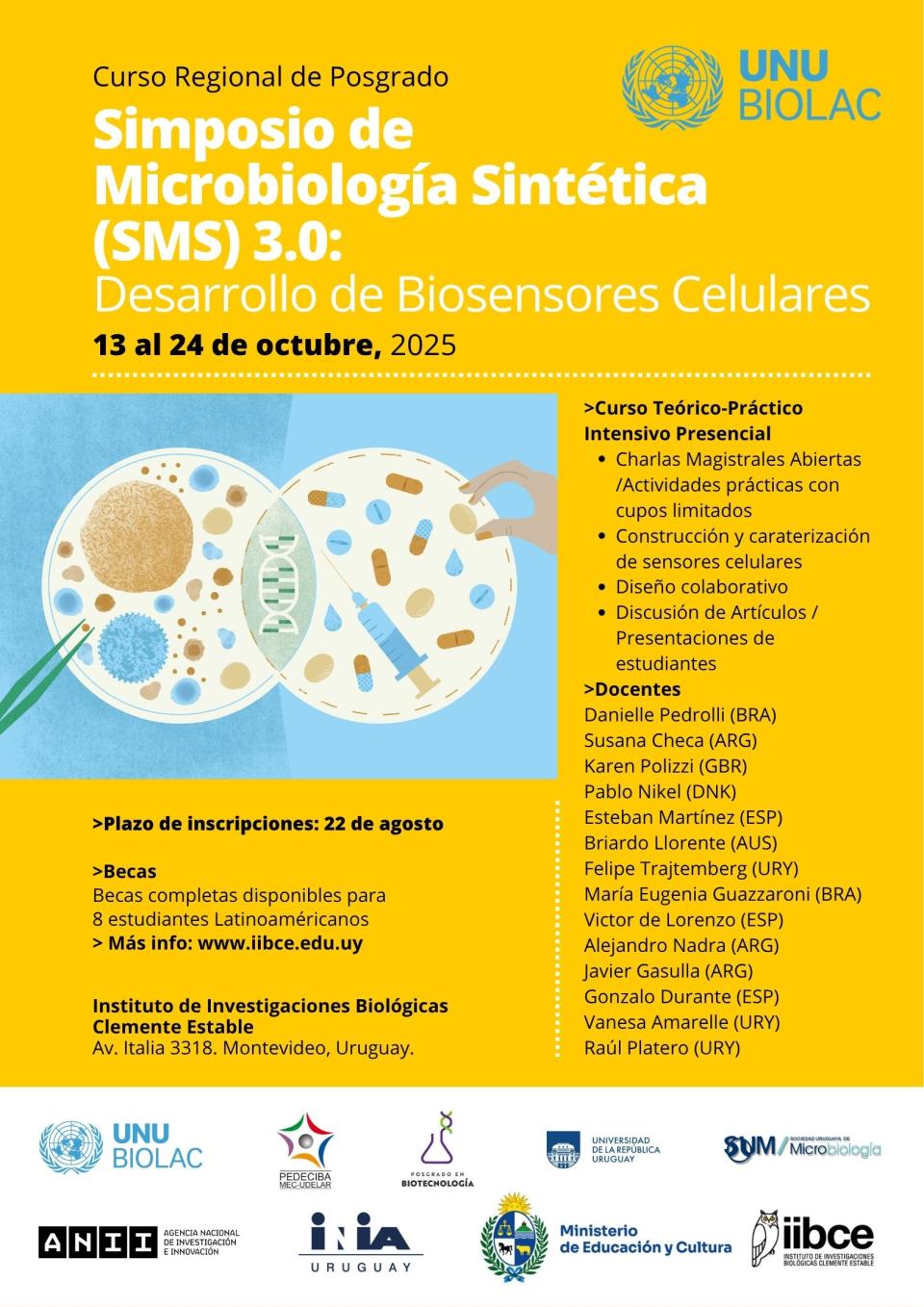The SMS3.0 edition boasts a program of presentations covering the fundamentals of synthetic biology, its biotechnological applications, the advantages of cellular biosensors, and the ethical considerations the field faces. In-person lectures, led by national instructors and invited professors, will complement remote presentations from key actors in Synthetic Biology. These sessions will serve as a foundation to enrich the in-person discussion of articles and review of existing models, in which teachers, students, and invited professors will participate. All of this knowledge will be integrated into practical activities aiming at designing and constructing cellular sensors or biosensors capable of detecting environmental pollutants present in our region, such as toxins produced during cyanobacterial “blooms”, pesticides, and heavy metals.
For the SMS3.0 course edition, our general objective is to review the state-of-the-art in synthetic microbiology, introducing students to the methodological approaches used and their application in high-impact biotechnological projects. In particular, this edition will focus on the potential of SynBio approaches for the generation of cellular biosensors, enabling low-cost detection and monitoring of environmental pollutants affecting our continent. The specific objectives for this edition of the course are:
- Rationally design genetic circuits using well-characterized biological parts for their application in the construction of biosensors.
- Identify new biological parts that can serve as response elements to the presence of common environmental pollutants in our region.
Follow this link to see the course's program
Application procedure
Applications will be received via this form (Google login required)
Interested candidates will be required to submit a motivation letter and a brief CV.
For more information, send your questions to symmicrobio@gmail.com, platero.iibce@gmail.com, amarelle.iibce@gmail.com
Last day to apply: August 22nd, 2025.

